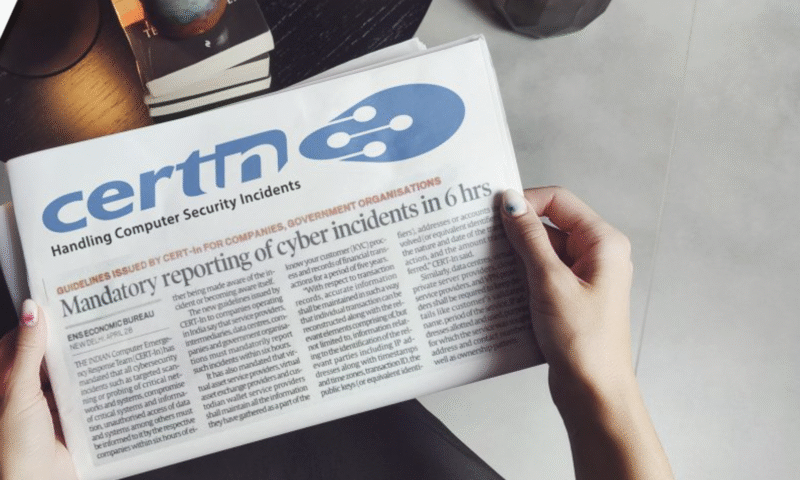
[CIVN-2025-0264] Denial of Service Vulnerability in CISCO
—–BEGIN PGP SIGNED MESSAGE—–
Hash: SHA256
Denial of Service Vulnerability in CISCO
Indian – Computer Emergency Response Team (https://www.cert-in.org.in)
Severity Rating: MEDIUM
Systems Affected
Open Source Snort 3
1000 Series Integrated Services Routers (ISRs)
4000 Series ISRs
Catalyst 8000V Edge Software
Catalyst 8200 Series Edge Platforms
Catalyst 8300 Series Edge Platforms
Catalyst 8500L Edge Platforms
Cloud Services Routers 1000V
Integrated Services Virtual Routers
Overview
Multiple vulnerabilities have been reported in HTTP Multipurpose Internet Mail Extensions (MIME) Decoder could allow an unauthenticated, remote attacker to cause the Snort 3 Detection Engine to leak possible sensitive information or to restart.
Target Audience:
All IT administrators and individuals responsible for maintaining and updating in HTTP Multipurpose Internet Mail Extensions (MIME) Decoder.
Risk Assessment:
High risk of data manipulation and service disruption.
Impact Assessment:
Potential impact on confidentiality, integrity, and availability of the system.
Description
Information Disclosure Vulnerability ( CVE-2025-20359 )
This vulnerability exists due to an error in the logic of buffer handling when the MIME fields of the HTTP header are parsed. An attacker could exploit this vulnerability by sending crafted HTTP packets through an established connection that is parsed by Snort 3.
Successful exploitation of this vulnerability could allow the attacker to induce one of two possible outcomes: the unexpected restarting of the Snort 3 Detection Engine, which could cause a denial of service (DoS) condition, or information disclosure of sensitive information in the Snort 3 data stream.
Denial of Service Vulnerability ( CVE-2025-20360 )
This vulnerability exists due to a lack of complete error checking when the MIME fields of the HTTP header are parsed. An attacker could exploit this vulnerability by sending crafted HTTP packets through an established connection to be parsed by Snort 3.
Successful exploitation of these vulnerabilities could allow the attacker to cause a DoS condition when the Snort 3 Detection Engine unexpectedly restarts.
Solution
Apply appropriate updates as mentioned in Cisco Advisory
https://sec.cloudapps.cisco.com/security/center/content/CiscoSecurityAdvisory/cisco-sa-snort3-mime-vulns-tTL8PgVH
Vendor Information
CISCO
https://sec.cloudapps.cisco.com/security/center/content/CiscoSecurityAdvisory/cisco-sa-snort3-mime-vulns-tTL8PgVH
References
CISCO
https://sec.cloudapps.cisco.com/security/center/content/CiscoSecurityAdvisory/cisco-sa-snort3-mime-vulns-tTL8PgVH
CVE Name
CVE-2025-20359
CVE-2025-20360
– —
Thanks and Regards,
CERT-In
Incident Response Help Desk
e-mail: incident@cert-in.org.in
Phone: +91-11-22902657
Toll Free Number: 1800-11-4949
Toll Free Fax : 1800-11-6969
Web: http://www.cert-in.org.in
PGP Fingerprint: A768 083E 4475 5725 B81A A379 2156 C0C0 B620 D0B4
PGP Key information:
https://www.cert-in.org.in/s2cMainServlet?pageid=CONTACTUS
Postal address:
Indian Computer Emergency Response Team (CERT-In)
Ministry of Electronics and Information Technology
Government of India
Electronics Niketan
6, C.G.O. Complex
New Delhi-110 003
—–BEGIN PGP SIGNATURE—–
iQIzBAEBCAAdFiEE6r4Iam/Ey0c/KakL3jCgcSdcys8FAmjyKMgACgkQ3jCgcSdc
ys/CFQ/8CIuNobEof/KFunBHekf8p9Qps6zwivasG3QcDeEIdR0KkuXb/Bru6ls7
A65A3g9vQpB/lsaa29ZNPc2trR94SxYgaBihlHOdKgc1vCG+iI0r/0eYieRgM0ot
xYntuNKLohAM2jbx/zbvuSV9zJuvurvoLUnP73Imd9elO+3bd8CCXj8S6ceEWO7u
qh5kzq2X1nxtPOqLhTum4/L+I/LCsKlAm82mfIaXJyCNUyk5xkHzb2ibkocMbgfY
UudkjhrS3tFr9CgqG9B9OZA1O1YaNfDuynYJKimJ+m5VyF2dWlMbBJ9Kli5luPov
uJ67QslZnvbh5h8SbOK8S04iKFZhqGbvQsZlKgsOYaLhwT8vcOeorjZ4a+7LvzfK
Bj+UUqMGhq3nS5RXqkUPeX6pJXkoA+8dzbeNiM+gN2KFV7HfFa8+zTrLQcXPbI6q
MOyQSlKcqH9cbZbZ/hlO3KDS6Q5iWekrwMflmIZmyupLxj6ogrZ31Vy1W1jeP1Bu
iuWmFMDqYgshJzFAyM17sZLaGDdAMKBWNed6701uS3ZSC3IdBhy4Q4LAT7zGH1vt
35x2BSjZiGcv4Prk+TEl7vPaVa3a8a7uPexIvgferFehqDOn0V+FJoGbqv7/kTXk
VgJdBKlICVvL4/37GoDwAqI7m51KtwUrDe6E916rUiFHrzEJ2Kg=
=SpzC
—–END PGP SIGNATURE—–

![[CIAD-2026-0009] Multiple Vulnerabilities in Atlassian Products](https://teamwin.in/wp-content/uploads/2025/06/certin-new-e1751351599950-500x383.png)

